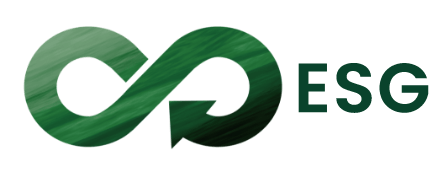Responsible Product
We ensure that the design, manufacturing, quality control, and shipping of our products meet customer expectations. All products comply with relevant safety and labeling regulations in various countries, such as medical devices. We strive for continuous innovation to collaborate with customers in developing innovative and sustainable technology products. Additionally, we aim to reduce the use of organic solvents and minimize waste generation.

All Business Units
100% of new product developments must comply with internal sustainability criteria
Healthcare Products
Waterproof and breathable textiles
e2cycle: Innovative PET Recycling Technology Transforming Electronic Waste into High-Performance Textiles
Product Safety and Marketing Labels
All medical device products sold by BenQ Materials must obtain regulatory approval and certification from the respective countries prior to market entry. Certifications acquired include those from Taiwan (TFDA), the European Union (CE), the United States (FDA), and China (NMPA).
During clinical trials, products must comply with ISO 14971:2019, the standard for medical device risk management, and ISO 14155:2020, the guideline for clinical evaluation of medical devices. These standards govern risk management during product development and the scientific design, execution, documentation, and reporting of clinical trials to ensure reliable and valid results. In addition, medical devices intended for direct human contact must pass biocompatibility testing under the ISO 10993 series before market release.
| Countries | Applicable Product Regulations |
|---|---|
Taiwan |
|
EU (applicable to all Member States) |
|
USA |
|
China |
|
Malaysia |
|
| Singapore |
|
Thailand |
|
Indonesia |
|
Vietnam |
|
Japan |
|
Medical Device Manufacturing and Sales Permits
BenQ Materials is a licensed medical device manufacturer, having obtained official approval and registration to produce related medical device products. These products comply with the safety and manufacturing standards of various countries, and the company holds all necessary manufacturing licenses.
For product sales, BenQ Materials must also acquire a medical device distribution license and complete product registration before any product can be legally marketed. Additionally, since contact lenses are classified as medical devices, they must be sold through physical retail channels that hold valid medical device distribution licenses before reaching end consumers.
Medical Device Product Labeling and Marketing Regulations
Transport Packaging Labeling Requirements
- Outer Packaging: Must be clear, easily identifiable, and permanent, including the following details:
• Quantity
• Manufacturer or supplier name/logo
• Production date in ISO 8601 format
• Batch/lot number
• Basis weight (grams per square meter)
• Roll width (cm) and length (m)
• Recommended storage conditions
- Inner Packaging or Roll Labels: Must be clearly visible and firmly attached, including:
• Manufacturer or supplier name/logo
• Batch number
• Basis weight (grams per square meter)
Medical Device Labeling Requirements
All BenQ Materials' medical device labels must comply with the local medical device regulations of each target sales market. In addition, labeling follows ISO 15223-1:2021, which provides standardized symbols for labeling and product information used in medical devices.
For products governed under Taiwan's Medical Devices Act, labels, instructions, or packaging must include:
• Product name
• License number or registration number
• Performance/intended use or indications
• Manufacturing date and expiration/shelf life
• Model/specification or key components
• Warnings, precautions, usage limitations, and foreseeable side effects
• Name and address of the license holder or registrant
• Name and address of the manufacturer
• Lot number or serial number
• Any other items announced by the central competent authority
Medical Device Marketing Requirements
Marketing of medical devices must strictly comply with the relevant advertising and marketing laws in each jurisdiction.
For example, in Taiwan:
• Pre-approval is required from competent authorities for any promotional materials, including text, graphics, or verbal content.
• Promotional practices are restricted: it is prohibited to advertise through impersonation, disguised publications, interviews, or other improper methods.
Taking contact lenses as an example (regulated as medical devices), all advertisements— whether print or digital—must comply with Taiwan FDA advertising review guidelines. The Ministry of Health and Welfare regularly communicates updated rules and review principles to ensure proper implementation.
For influencer collaborations, BenQ Materials requires all branded product review content to be pre-screened by the regulatory affairs department to ensure compliance with advertising laws.









